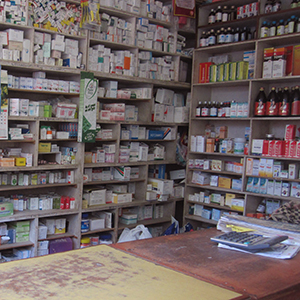 In 2015, we conducted in-depth interviews with 19 pharmacy-based workers, including pharmacy owners and auxiliary nurse-midwives, in two districts of Nepal—Chitwan and Jhapa. We found that Nepali pharmacy owners and staff felt that they can deliver safe and effective services to their clients, and that they offer an important alternative in regions where women have limited access to clinic-based abortion care. They felt that formal integration of pharmacy-based providers into legal networks of abortion provision could improve the quality of care they provided by strengthening training and referrals.
In 2015, we conducted in-depth interviews with 19 pharmacy-based workers, including pharmacy owners and auxiliary nurse-midwives, in two districts of Nepal—Chitwan and Jhapa. We found that Nepali pharmacy owners and staff felt that they can deliver safe and effective services to their clients, and that they offer an important alternative in regions where women have limited access to clinic-based abortion care. They felt that formal integration of pharmacy-based providers into legal networks of abortion provision could improve the quality of care they provided by strengthening training and referrals.
Despite the legalization of abortion in Nepal in 2002 and subsequent expansion of services, unsafe abortion is still common and exacts a heavy toll on women, as documented in the 2016 study, “Abortion Incidence and Unintended Pregnancy in Nepal.” Access to safe abortion care is especially limited in remote areas where trained providers and equipment are scarce. Given that 76% of Nepali women live in rural areas, providing medication abortion through pharmacies could increase access to care for the most vulnerable women.
The study, “Pharmacy Provision of Medication Abortion in Nepal: Pharmacy Owner and Worker Perspectives,” is available in the journal International Perspectives on Sexual and Reproductive Health.
